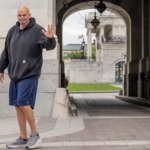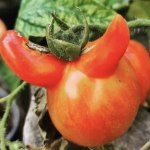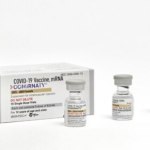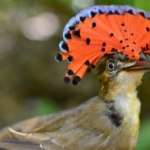20 September 2023
A new study from international researchers says that Earth is outside of its "safe operating space for humanity" in six of nine measures of its health. The study added that two of the remaining three measures are moving in the wrong direction.
The international scientists published the study in Science Advances. They said Earth's climate, biodiversity, land, freshwater, nutrient pollution, and human-made compounds are outside of "safe operating space for humanity."
The scientists said only the acidity of the oceans, the health of the air, and the ozone layer are within limits considered to be safe.
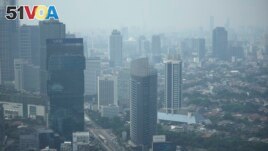
FILE - Haze blankets the main business district in Jakarta, Indonesia on August 11, 2023. (AP Photo/Dita Alangkara, File)
The ozone layer is mainly high in the atmosphere and prevents dangerous solar radiation from reaching the surface of the Earth.
But the study warned that both the ocean and air pollution are moving in the wrong direction.
Johan Rockstrom is a climate scientist who helped write the study. He is director of the Potsdam Institute for Climate Impact Research in Germany. He said, "We are in very bad shape." He compared the Earth to a weakening, sick patient.
In 2009, Rockstrom and other researchers created nine "boundary areas" and used measurements of them to judge Earth's health. The latest study continued research from a similar one in 2015. The latest study added a sixth area to the unsafe listing.
Rockstrom said the Earth's water went from being safe to being "out-of-bounds." The scientists said this was because of river run-off. They said better measurements and understanding of the issue had shown there was a problem.
Rockstrom said these boundaries would decide the future of the planet. He added the nine measures have been "scientifically well established" by other studies. If Earth can manage these nine measures, Earth could be more-or-less safe. But it is not, he said.
The nine measures were compared with each other in different ways. The team used computer simulations to predict the future. They would, for example, make predictions based on increases in the average temperature of the Earth. The team found, if one area was affected badly by a temperature change then all areas were affected badly. The team also found that if one area improved, all areas improved.
The scientists said the simulations showed that one of the most powerful ways to help the climate is to clean up land and to save forests. Returning forests to the late 20th century levels would provide natural areas to store carbon dioxide instead of in the air, where it traps heat, the study said.
Rockstrom added that biodiversity is in the most troubling area but does not get as much attention.
However, the study said the ozone layer is improving. This shows that when the world and its leaders decide to deal with a problem, it can be fixed.
Neil Donahue is a Carnegie Mellon chemistry and environment professor. He said, "for the most part there are things that we know how to do" to improve the remaining problems.
Some biodiversity scientists, like Duke University's Stuart Pimm, have disputed Rockstrom's methods, saying they are not worth much.
Granger Morgan is a Carnegie Mellon environmental engineering professor and was not part of the study. He said, "Experts don't agree on exactly where the limits are, or how much the planet's different systems may interact, but we are getting dangerously close."
Morgan said he has often said if we do not cut back on how we are harming the Earth, "we're toast." He added, "This paper says it's more likely that we're burnt toast."
I'm Gregory Stachel.
Seth Borenstein reported this story for The Associated Press. Gregory Stachel adapted the story for VOA Learning English.
Words in This Story
boundary –n. an area where something ends, and another begins
out-of-bounds –adj. an area that is outside the place where a game is played
biodiversity – n. the existence of many different kinds of plants and animals in an environment
manage – v. to keep (something) under your control
simulation – n. something that is made to look, feel, or behave like something else especially so that it can be studied or used to train people
interact – v. to come together and have an effect on each other
be toast – idiom to be in a lot of trouble
toast – n. bread that has been sliced and then made crisp and brown by heat

